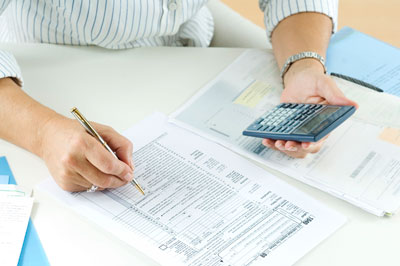Virtually all entrepreneurs, even those who have accumulated substantial wealth, need financing to start their business. As the old saying goes, you have to spend money to make money. Some business owners will also need additional financing while running their business, perhaps to expand their operations or for research and development. When you seek financing for your business, most bankers and lenders will ask you to provide specific financial documents so that they can evaluate your application.
Relevant financial documents include tax returns, bank accounts, profit and loss statements, and a personal financial statement.
It’s a good idea to provide your lender with as much information as possible when applying for a loan to increase your chances of receiving financing. Remember, lenders generally offer better loan terms to borrowers when they know what type of risk is involved.
How to prepare a Personal Financial Statement?
Below is an example of a basic personal financial statement, which provides a snapshot of your finances as you prepare the statement. For more information and resources related to this topic, you can visit the section of Financing.
Assets
 Cash $ __________
Cash $ __________
Checking account $ __________
Savings $ __________
Values $ __________
Accounts / notes receivable $ __________ Accounts receivable
Real Estate $ __________
Cash value life insurance $ __________ $ __________ Cash value life insurance
Other Assets $ __________
TOTAL ASSETS $ __________
Passives
Documents payable $ __________
Accounts / bills due $ __________
Taxes not paid $ __________
Real estate mortgages payable $ __________
Land contracts payable $ __________
Life insurance loans $ __________.
Other liabilities $ __________
TOTAL LIABILITIES $ __________
EQUITY $ __________
TOTAL LIABILITIES AND EQUITY $ __________
(Assets always equal to Total Liabilities and Net Value)
Please note that the above form is only a sample of a personal financial statement. Your particular lender may require you to provide additional or different information. For more information on how to run your business, visit the Small Business Laws section.
Options to finance your business
Funding for your business can come from multiple sources, and most entrepreneurs use more than one. If you have the money, you can finance some or all of the business yourself, but it is a considerable risk to use all of your money in a business venture that may not be successful. There is also the option of borrowing from friends and family, provided they have the capital and understand what is at stake. However, there is a risk that owing money to a friend or family member could cause problems in your relationship.
It is also possible to finance your business with a credit card. But keep in mind that credit cards are one of the most expensive ways to finance your business, and they usually come with very high interest rates.
Banks and other similar financial institutions can also be a good source of business loans, assuming you meet the criteria for a loan and offer much better interest rates than credit cards. Finally, you can apply for a federally backed loan from the Small Business Administration (SBA).
Regardless of how you choose to finance your business, it is a good idea to have all of your financial documents organized and available. This includes producing a detailed and accurate personal financial statement. The more information you can provide to the potential lender, the greater the likelihood that you will be approved for the loan.
Advice:
Creating a personal financial statement generally does not require the help of an attorney. However, if you have questions or concerns about taking a personal financial statement, or any other aspect of starting or running your business, you can contact an experienced business attorney in your area.

